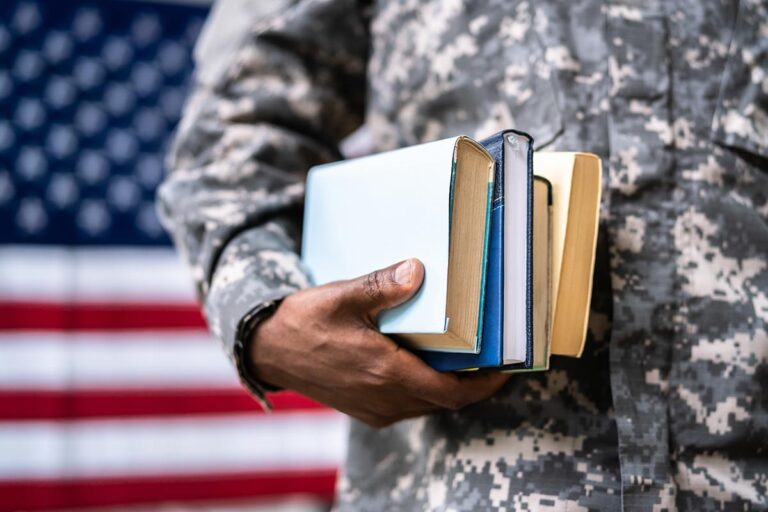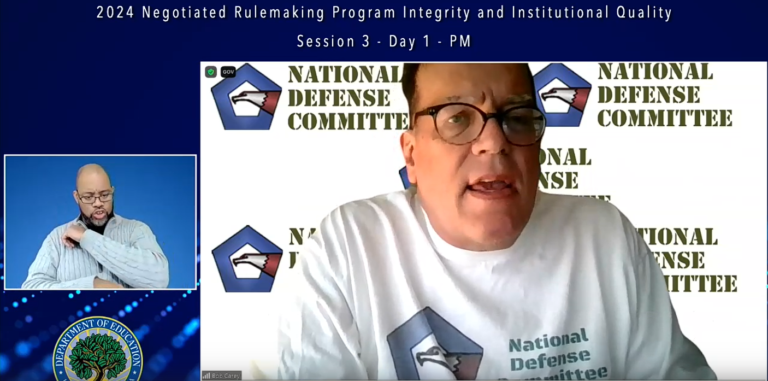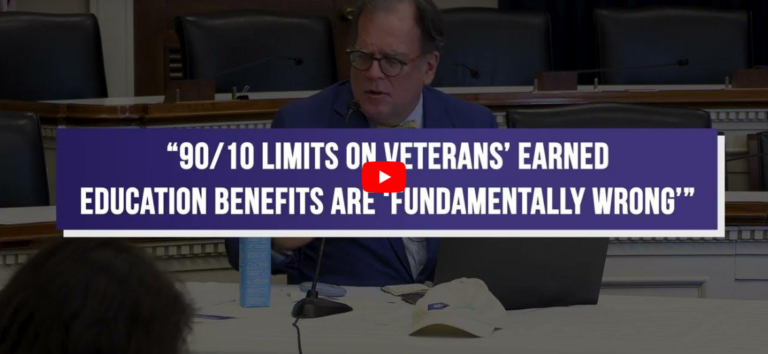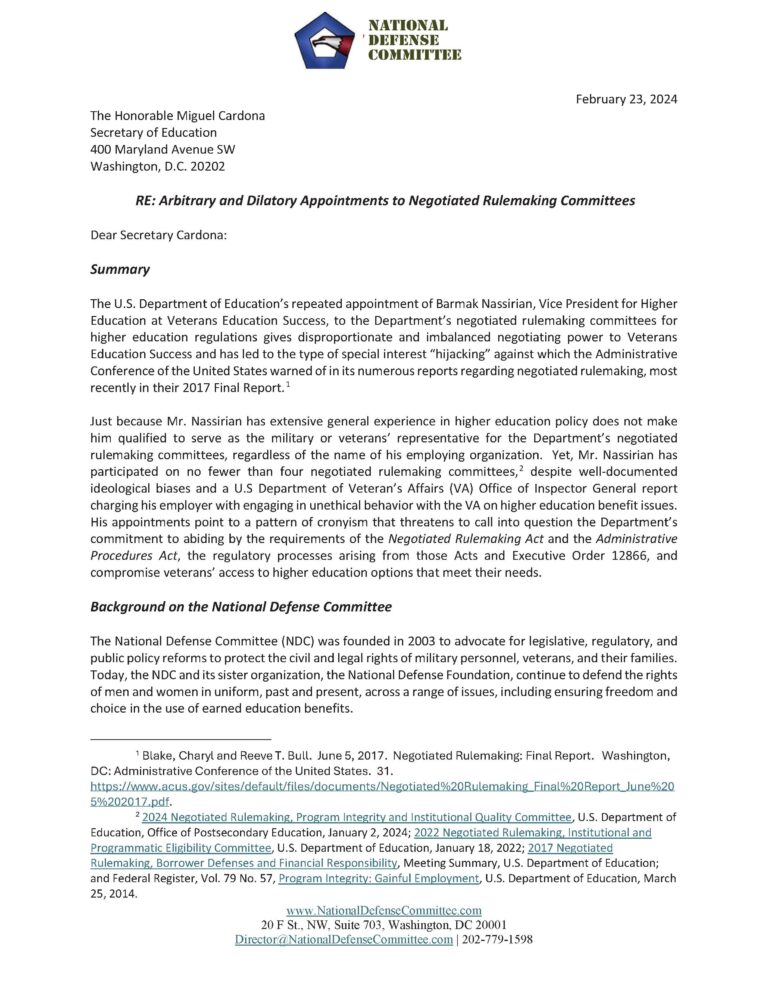Rep. Burgess Owens and Bob Carey: Dept. of Education’s Selective Regulation Hurts Our Military
The U.S. military is in the midst of a recruiting crisis, and the U.S. Department of Education’s and the U.S. Department of Veterans’ Affair’s micro-management of how and where military members and veterans can use their earned education benefits is exacerbating the problem, Utah Congressman Burgess Owens and National Defense Committee executive director Bob Carey write in the Washington Times.
See the Washington Times’ Special Section:
Higher Ed Harassment—Is Education Department Overreach Harming America’s College Students?
Last year the branches of the military collectively missed their recruiting goals by 41,000, reducing our active-duty force to its lowest level since 1940.
Education benefits are one of the U.S. military’s best tools to recruit, retain, and develop leaders. In fact, over 50 percent of military personnel and veterans enlisted because these benefits, and these rates are even higher among women and people of color.
But the Department of Education and VA have gone to great lengths to limit how and where military and veterans can use their education benefits, pigeonholing students into public and state-run colleges and universities.
The agencies’ 90/10 Rule and Gainful Employment Rule—which are applied only to career, technical, and trad schools—are examples of this “regulatory cherry-picking” and selective enforcement.
If these rules are so necessary, why aren’t they applied to all degree-granting colleges and universities, when the Department of Education’s own data shows upward of one-third of private certificate programs and nearly one in five public certificate programs would fail the Gainful Employment Rule?
“There’s a reason nontraditional schools and distance learning programs have grown in popularity with military and veteran students,” Rep. Owens and Mr. Carey write. “They provide flexible schedules, teach skills that are applicable to a career, and frequently have kept tuition low, creating a cost-effective route to a post-secondary degree.”
“We believe that military and veteran students—not bureaucrats in Washington—are best equipped to make decisions that are right for them, especially when it comes to their education… Our commitment is clear: support those who have supported us, and ensure they have the freedom and resources to succeed and build a stronger, more resilient force — both on and off the battlefield.”
Read the full piece here.






